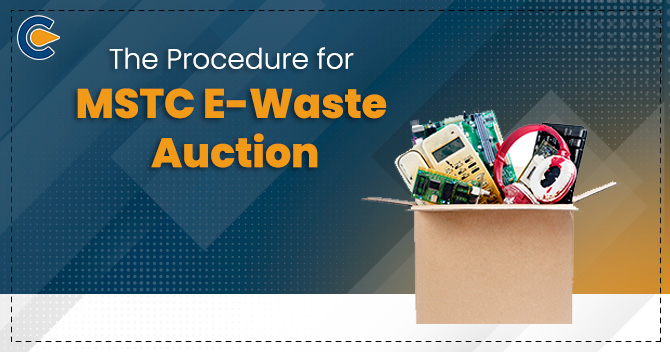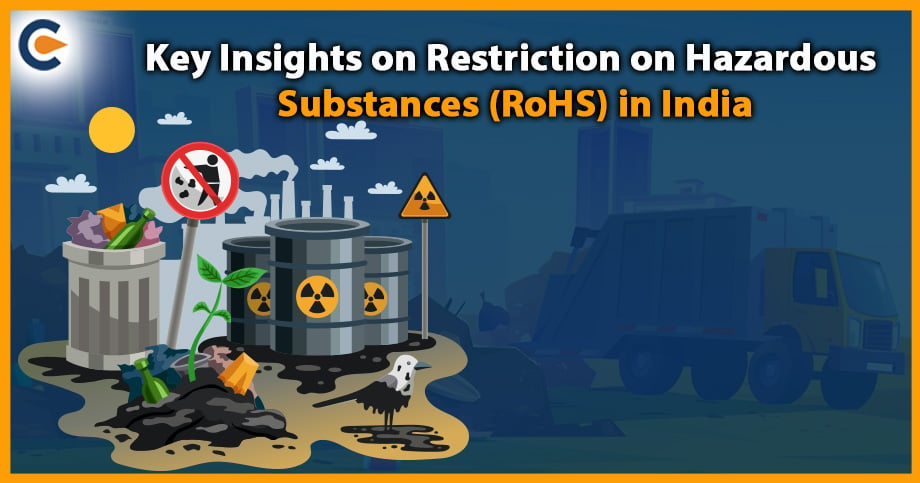There are so many industries in India that emit hazardous pollution into the environment. Some of the prominent industries that discharge excessive pollution mainly belong to paint, fertilizer, chemical sector, etc. The legislation that regulates these industries is known as Hazardous And Other Wastes (Management and Transboundary Movement) Rules, 2015. This blog seeks to discuss the applicability of Hazardous Waste Management Rules in India.
What is the legal definition of Hazardous waste under the hazardous waste management rules?
As per the said rules, the term “hazardous waste” implies any waste which, because of traits such as biological, physical, reactive, chemical, explosive, toxic, flammable, poses a risk to human life and ecological balance, whether sole or in connection with other wastes and shall entail.
- Waste mentioned in column (3) of Schedule I;
- Waste having equal to or higher than the concentration thresholds prescribed for the constituents in class A and B of Schedule II or any of the traits as mentioned in class C of Schedule II; &
- Waste mentioned in Part A of Schedule III w.r.t export or import of such wastes or wastes not mentioned in Part A but demonstrate hazardous traits mentioned in Part C of Schedule III;
Authorization under Hazardous Waste Management Rules, 2015
Authorization under Hazardous and Other Wastes (Management and Tran boundary Movement) Rules, 2015 is granted by competent State authority against the prescribed application and fees.
List of industries mandated to secure Hazardous Waste Management Authorization
The said authorization is mandatory for the following industries.
- Facilities dealing with Petrochemical processes & pyrolytic operations
- Facilities involved with the Petroleum refining or reprocessing of used oil or recycling of waste oil
- Facilities undertaking Industrial operations utilizing synthetic oil or mineral as a lubricant in hydraulic systems or other applications
- Metal surface treatment, such as staining, etching, polishing, cleaning, galvanizing, degreasing, plating, etc.
- Production and/or industrial use o arsenic and cadmium and their compounds
- Steel hardening units
- Facilities dealing with the production of nitrogenous & complex fertilizers
- Phenol production unit
- Production and industrial use of pigments, paints, lacquers, varnishes & inks
- Plastic production unit
- Production & /or industrial use of organic cement, glues, adhesive, & resins
- Textile & canvas production unit
- Facilities dealing with synthetic dyes, dye intermediates and pigments in any way
- Production of organic-silicone compound
- Production/formulation of medicine/pharma and health care product
- Production & formulation of pesticides including stock-piles
- Leather tanneries
- Electronic production unit
- Paper and Pulp production facilities
- Facilities involved in the handling hazardous chemicals and wastes
- common industrial effluent treatment plants
- facilities undertaking purification process for organic solvents/compounds
- Facilities dealing with Hazardous waste treatment processes,
- Facilities undertaking chemical processing of Ores containing heavy metals
The high quantum of common effect wastes such as red mud, fly ash, Phosphogypsum, slags, jarosite, from pyrometallurgical undertakings, mine tailings, & ore beneficiation rejects are not included in the category of hazardous wastes. The Central Pollution Control Board shall roll out separate directions relating to managing such wastes.
Norms around Grant of Hazardous Waste Management Authorization
- Every establishment’s occupier dealing with hazardous and other wastes in any form shall be required to secure authorization from relevant state authority within 60 days from the publication date of such rules. While filing the said application, the applicant is required to furnish the copy of Pollution-related consent granted by the relevant state authority under the legislations like Water (Prevention & Control of Pollution) Act, 1974 (25 of 1974) & the Air (Prevention & Control of Pollution) Act, 1981 (21 of 1981);
In case of authorization’s renewal, a compliance report (self-certified) relating to effluent emission norms mentioned in the authorization: Provided that the application for the authorization’s renewal may be made three months prior to the expiration of such authorization.
Provided further that:
- any individual authorized under the governing legislation, prior to the date of commencement of such rules, shall not be required to apply for authorization till the expiration duration of such authorization
- Any individual involved with the reprocessing or recycling of the hazardous waste mentioned in Schedule IV and having certification under the governing rules shall not be required to apply for authorization till the period of expiration of such registration.
- On receipt of the said application for the authorization, the concerned state authority may, after such inquiry as it deems relevant, and on being satisfied that the applicant has apt premises for the collection, storage, transportation, packaging, treatment, processing, destruction, use, recycling, recovery, co-processing, utilization, sale, of the hazardous and other waste, depending on the case, and post ensuring technical competence and equipment adhering to SOPs cited by the relevant central department from time to time and via premises inspection, grant within 180 days, an authorization in a prescribed form to the applicant. The said authorization shall remain valid for five years.
For widely recyclable hazardous waste as mentioned in Schedule IV, the directions already underpinned by the Central Authority shall be followed.
Provided that in the event of an application for authorization’s renewal, the relevant state authority may, prior to granting such authorization, satisfy itself that no conditions have been breached by the applicant for erstwhile authorization, and same must be recorded in the inspection report.
- The authorization granted by the competent state authority under sub-rule (2) shall be attested with a copy of the field inspection report sanctioned by the Board implying the adequacy of units for handling the entire supply chain of waste and compliance to the directions or SOPs provided by the competent central authority from time to time.
- The competent state authority has the power to refuse the grant of authorization under these rules and not without informing the applicant in writing. Further, the applicant will get a fair chance to put their case upfront before the said authority to challenge such a decision.
- Every authorized occupier is liable to maintain a record pertaining to hazardous and other wastes in form 3 and share the same with the competent state authority. An annual return filing with the said authority is also mandatory for such occupiers. The annual return should entail the details provided in form 4, and it must be submitted on or prior to the 30th day of June following the FY to which that return relates.
- The competent state authority is liable to maintain a register enclosing details of the norms levied under prevailing rules for hazardous waste management. It must be open for scrutiny during working hours to any designated officials.
- The authorized actual user of hazardous wastes is liable to maintain records pertaining to hazardous and other wastes procured in a passbook issued by the competent state authority with the authorization.
- Handling over of the said wastes to the certified authorized actual users shall be only after making the entry into the actual user’s passbook.
Provisions around Cancellation or Suspension of the Authorization under hazardous waste management rules
(1) The concerned State authority operating under MoEFCC[1] has the right to cancel or suspend the authorization granted under rule 6 in case of non-compliance. However, the authority shall not take such decisions without informing the applicant in writing and given a fair chance of being heard.
(2) Upon cancellation or suspension of the authorization, the competent state authority rolls out guidelines to the person whose authorization has been cancelled or suspended for the apt storage and management of hazardous wastes, and such occupier shall adhere to such directions.
Conclusion
The Hazardous Waste Management Authorization norms are quite diverse since it covers a range of industries under its ambit. It primarily aims to safeguard the environment and human life from the drastic effect of pollutants that are considered hazardous.
Read our Article:Meaning of Hazardous Waste and Legalities around it











